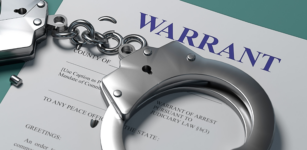How Do I Check if a Warrant is Out for My Arrest?

There are many myths about arrest warrants, including when they can be issued and what you should do if you have been issued with one.
So here’s some information that may assist if you suspect police could be knocking on your door sometime soon.
What Is an Arrest Warrant?
An arrest warrant is an order issued by a magistrate or a judge which empowers law enforcement agents such as police to lawfully arrest you and bring you before a court.
There are several circumstances in which an arrest warrant may be issued, including when you:
- Are charged with a criminal offence but cannot be located,
- Fail to attend court as required by law (in which case, a ‘bench warrant’ may be issued),
- Have breached a condition of bail or an apprehended violence order,
- Have been convicted and sentenced to a term of imprisonment but cannot be located,
- Have breached a condition of a sentence, such as one contained in a community correction order or intensive correction order, or
- Have breached a condition of parole.
Types of Warrants
Arrest warrants can be issued in relation to various Acts, either before conviction, after conviction, after sentencing, or in special circumstances.
Before Conviction:
The most common warrants for arrest before conviction relate to one of the following:
- An arrest warrant under Criminal Procedure Act 1986
- Magistrate issues a warrant for arrest for failure to appear in court
- Magistrate or registrar issues a warrant in AVO proceedings under s88 Crimes (Domestic and Personal Violence) Act 2007
- Magistrate or court registrar issues an arrest warrant to bring a juvenile into court under s42 Children (Detention Centres) Act 1987
After conviction:
The most common warrants for arrest after finding of guilt, committal, or conviction are as follows:
- Magistrate issues a warrant after finding of guilt if the offender is absent according to section 25(2) Crimes Sentencing Procedure Act 1999,
- After committal to sentence an accused to a correctional centre according to the Criminal Procedure Act, or
- Failure to appear after failure to comply with the intervention program according to section 100R of the Criminal Procedure Act.
After sentencing:
There are a few breaches of orders that can lead to an arrest warrant after sentencing:
- Correct a sentence according to section 43 of the Crimes Sentencing Procedure Act,
- Breach of bond or suspended sentence or a juvenile,
- Alleged breach of CCO or CRO after failure to appear in court, or
- Alleged breach of CSO for juveniles under section 23 of the Children Community Services Orders Act 1987.
Other circumstances:
The other situations in which people may find themselves served an arrest warrant is as follows:
- Witness fails to appear in court in response to a subpoena under section 229 of the Criminal Procedure Act,
- Respondent fails to appear according to the Local Court Act 2007, or
- A forensic patient escaped from a mental health facility or is the subject of an apprehension order under the Mental Health and Cognitive Impairment Forensic Provisions Act 2020.
How Do I Know There’s a Warrant for My Arrest?
There is no nationwide, or even state or territory-wide, register of outstanding arrest warrants in Australia. And a national police check will not necessarily reveal the existence of a warrant.
If you believe a warrant may have been issued by a certain court or police station, it is a good idea to call or email them to determine whether this is the case.
Alternatively, a lawyer can make enquiries on your behalf and – in the course of doing so –negotiate to protect your interests.
Can I Avoid a Warrant If I’m Interstate or Overseas?
Generally, you will not be able to avoid an arrest warrant by moving to another State or Territory or by moving overseas.
Section 24 of the Service and Execution of Process Act 1992 (Cth) says that police can commence proceedings against you in any part of Australia.
This means, for example, that if police issue an arrest warrant in NSW, it can be enforced in Queensland or Victoria, and it stays in force until you are arrested.
Similarly, Australia has entered into a number of extradition treaties with other countries, meaning that law enforcement in your destination country may arrest you and send you back to Australia.
Should I Turn Myself In?
It is always a very good idea to speak with an experienced criminal defence lawyer before attending any police station to respond to an arrest warrant; as their job is to act in your best your interests and protect you against any adverse consequences of being exposed to members of the police force; unscrupulous members of whom may see your attendance as an opportunity to take advantage of your vulnerable situation.
A good lawyer may be able to convince police that it is in the interests of justice to return the warrant ‘unexecuted’ or, in the case charges are brought, grant you bail at the police station.
In the event police decide to execute the warrant and refuse police bail, your lawyer will attend court for your bail application and fight to have you released from custody pending your next court date.
Obtain Legal Advice
If you believe you may have a warrant out for your arrest, it is important to engage the services of experienced criminal defence lawyers to protect your interests and take care of the legal side of things, so you can put the episode behind you and get on with your life.






